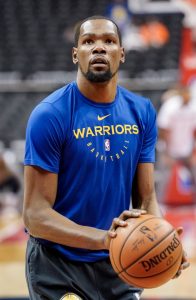Today, it cannot be doubted that top-level male footballers are firmly embedded within the British pop-cultural landscape. Gone are the days of when a select few superstars were eligible to feature in GQ or attend New York fashion week. The Instagramification of a footballer’s life means the eyes of millions can be available at the click of a button. Dave and Stormzy are just an example of the many British artists incorporating Premier League stars
into their lyricism or music videos.
Combining this increased presence of Premier League players in society with continually rising weekly wages – now averaging over £50,000, has seen cynicism grow. Standards nearing perfection have been placed upon players, being microscopically assessed at every opportunity.
And this can be perfectly reasonable, considering their widespread influence. Ensuring that homophobic or racist behaviour is condemned in-person and online is a necessity for building a tolerant society. Questioning the promotion of NFTs by players is crucial to ensuring that idolising fans aren’t irresponsibly lured into economic insecurity. Calling out lavish spending sprees and ostentatious lifestyles whilst seemingly everyone else’s living standards fall is perfectly justifiable.
Yet, this scrutiny becomes almost unreasonable when it relates to alcohol and drug use. The knee jerk reaction to any form of use is to shame and preach total abstinence. Not only do players live a life of luxury, but they are also role models to millions across the globe and thus should act responsibly. They have a duty.
However, is this really a fair way of treating players looking to ‘wind-down’ in the private realm? In being expected to adhere to abstinence from all so-called ‘sins’, footballers are held to a strict moral standard that bears no resemblance to the society in which they function. Why does being a top-level athlete immediately mean that occasional drinking or
legal drug use is somehow out of bounds – even when on the field performances are maintained?
Evidence of this criticism is plentiful. In recently celebrating Man City’s historic treble, Jack Grealish infamously undertook a heavy drinking session. Fans rejoiced at finally being able to see an element of personality in a hyper-sanitised game. Yet, many also were quick to condemn and control. Media opinion pieces and TV debates came to question his responsibility as a role model, whilst England manager Gareth Southgate stated that “there is a line” in an attempt to keep his partying in check.
Beyond alcohol exists legal highs and drugs. Many players, in seeking to avoid the sluggishness and hangovers associated with alcohol seek other mechanisms of escape. It does not mean that a widespread culture of Class A consumption exists. However, Raheem Sterling, Mesut Ozil and Dele Alli are just a few from a plethora of players who have used nitrous oxide in the past. Yet, as the government continues its tirade against the drug, it is unsurprising that every case of a footballer using has led to a moral panic being initiated. All nuance is lost, with the focus instead being on the ‘risks’, ‘controversy’ and ‘dangers’ of ‘hippy crack’.
And the latest element of this relates to the prominence of snus. It was recently reported that many players, including those at Manchester United and Manchester City, are using snus on a regular basis. As one club doctor put it:
“There is a school of thought that these are young men who have been told what to eat and drink and how to behave all their lives. If this is their one bit of rebellion, their attitude seems to be that it really isn’t that bad.”
Again, this is a legal product in which many in society use to avoid the harms of smoking, whilst still getting an intense nicotine rush. It can be used as a way of quashing anxieties or feeling a physical benefit. There is no doubting frequent use can be problematic. Yet, many consume responsibly and without addiction.
However, the reporting of this matter has portrayed snus as a drug that has become synonymous with addiction and danger – a widespread issue that no one is talking about. It seems at every step of the way, players are being cornered and embarrassed for safely using substances used prominently by others in society.
This treatment becomes interesting when compared to the NBA, MLB and NHL in the US. Here, cannabis use by players is not prohibited, nor does testing for the drug exist. Although contextually different due to the fact cannabis is recreationally legal in twenty-three states and players are highly unionised, it still speaks volumes on how the conversation around drugs and sportspeople does not need to be a binding commitment to abstinence. These are
leading sporting leagues with world-leading, multi-millionaire athletes. The fact that the players have been able to develop mature conversations and presented with a platform to destigmatise the use of cannabis speaks volumes of the progress needed in Britain.
One of the greatest basketballers and athletes of the twenty-first century, Kevin Durant, is an open advocate for the use of cannabis. He argues that it “settles you down” and is “like having a glass of wine”. This is not a player who retired five years ago. It is a man at the peak of his powers, earning $43million a year. Even if a legal market existed in Britain, imagine if Harry Kane came out with a similar message? It would be career suicide.
This is not to suggest that there is a burning desire for players to take drugs and slip into alcoholism in Britain. As an elite-level player, the health sacrifices required to maintain this condition are meticulous. Yet, enforcing abstinence and never allowing Premier League players to enjoy themselves seems a cruel and unrealistic pursuit that is detached from the society in which they function.
Matt is a freelance journalist for Volteface and aspiring policymaker on drug reform. His most notable project to date was undertaking research in Chicago on cannabis social equity measures in Illinois, contributing to an emerging field of policy analysis in the process. Matt is particularly invested in liberalising the UK’s approach to decriminalisation and harm reduction. For any queries, please contact matthewkr99@gmail.com



